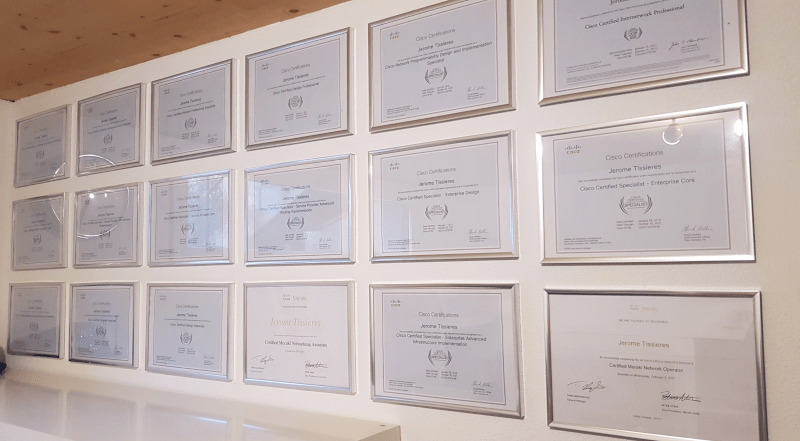Many network engineers, myself included, sometimes feel like they don’t belong and don’t deserve to be here. Here are a few tips to combat the impostor syndrome.
Sometimes, do you feel like an impostor?
This is quite common in IT: you feel like an impostor. Even when you’ve got THE dream job, or when you’ve earned this recognition, or when you’ve passed that famous certification… You can’t get rid of the feeling that it’s just smoke, that you must have fooled everyone and that at any moment you will be “discovered”. Yes, this is impostor syndrome.
How can we fight this feeling?
First: you are not alone.
A study in the International Journal of Behavioral Sciences reported that 70 percent of people studied have felt this way at some point during their careers.
Don’t compare ourselves to other professionals
It is important to realize that comparing ourselves to other professionals is a mistake. We all have different experiences. We may know better than anyone else about this specific technology used with this specific product, and nothing about this other one. And vice versa. We have to get used to the idea that the subjects in the network engineering fields are so vast and evolving so fast that we cannot know everything. And there is someone who has more knowledge and experience than us on one subject, and we on another.
Talk to your mentor
Talking to mentors can help recognize that these feelings of impostor are both normal and irrational. A mentor can also help you see how far you’ve come and what you know and know less well. And one of your mentors may ask you for advice on a technology you know better than him.
Make an achievements log
It’s a piece of advice I read a long time ago, and I’ve been doing it ever since: make an achievements log.
Personally, I make a small list every year, where I write down my greatest satisfactions. Like “Passed this cert by self-studying for six months”. Or “I completed this network project from A to Z and the migration with zero downtime was a success”. You get the idea?
At the moment you write it, it may seem a bit pointless. But read this list again after two or three years and you will see how quickly we forget successes and how we only remember mistakes or problems. Later, when you have a moment of doubt, go read these notes again. And by the way, this is also useful before a job interview.
Visualize success
Find something to visualize your successes every day. For example, in my home-office I created a “wall of certifications”:

Beware, I don’t say here that having many certifications make a good engineer. I did this for myself to remember how much efforts it took me to pass all those certifications. Every single frame on this wall is between three and nine months of study and lab work. This is just an example, you need to find out what works for you.
Make a self elevator pitch
This is another great way to build self-confidence. And it is also useful for job interviews or meetings where you have to present yourself. Make a 60-seconds elevator pitch of yourself: who are you, what is your background, what are your strengths, your skills, what are you currently working on or studying, what are you looking for.
Make also a short version, it can be useful at any time in your career.
Make a list of what you know well and less well
Nobody is perfect. Repeat after me: nobody is perfect!
Make a list of the things you are really qualified for and the areas that might need to be worked on. This can help you recognize areas where you are performing well and areas where there is legitimate room for improvement. Then, make a plan to work on the weak points.
Help others
Don’t just ask for help from those who are more experienced. Tutoring or working with less experienced engineers or students can help you become aware of how far you’ve come and what you have to pass on.
Recognize when you need to be humble
Having great self-confidence is one thing. But don’t be an idiot! There are also times when you have to admit that you know less about a subject than someone else. This is when you need to be quiet and listen. And ask questions, if necessary, to better understand.
Featured image by Анна Галашева
